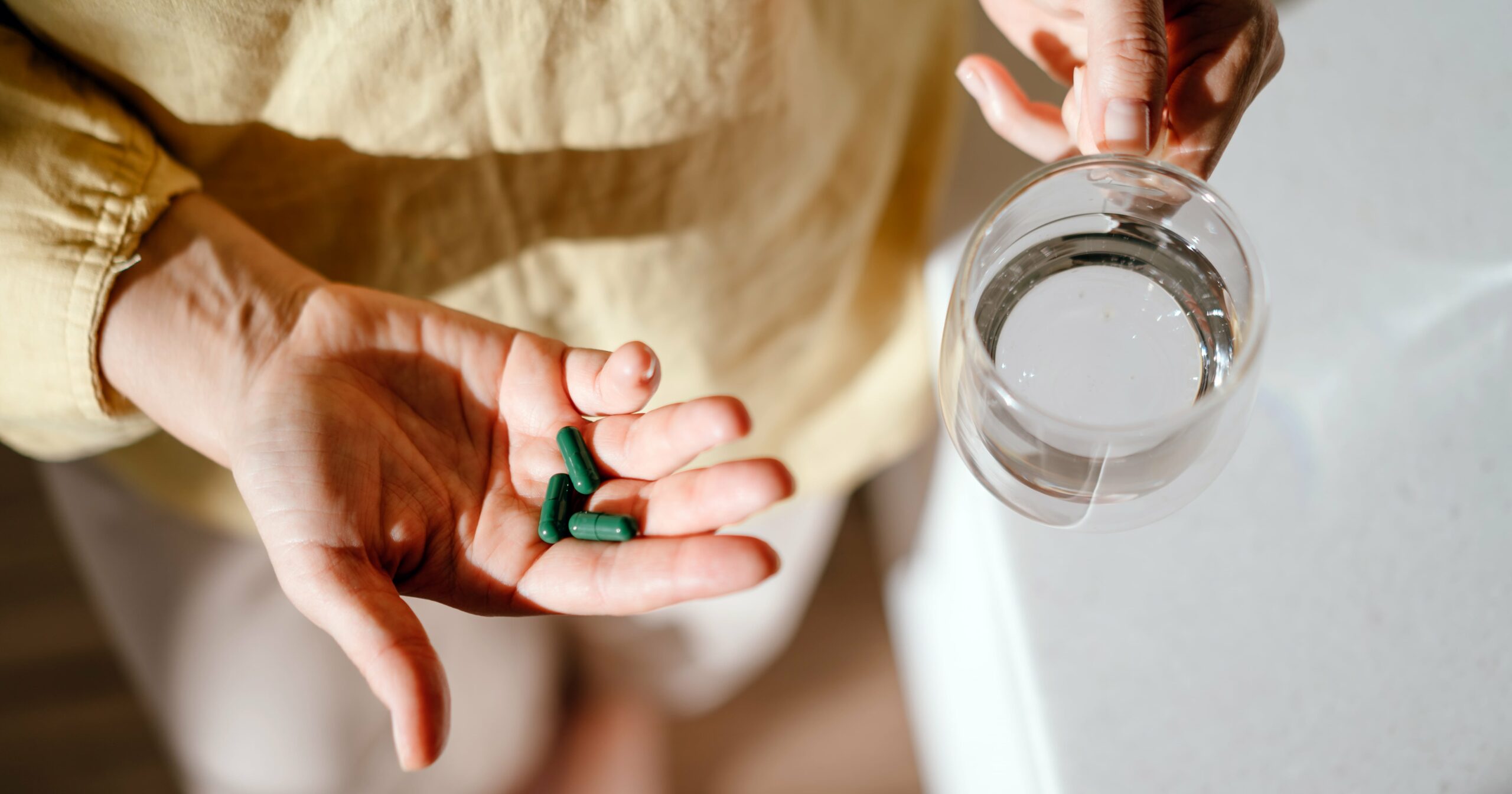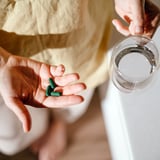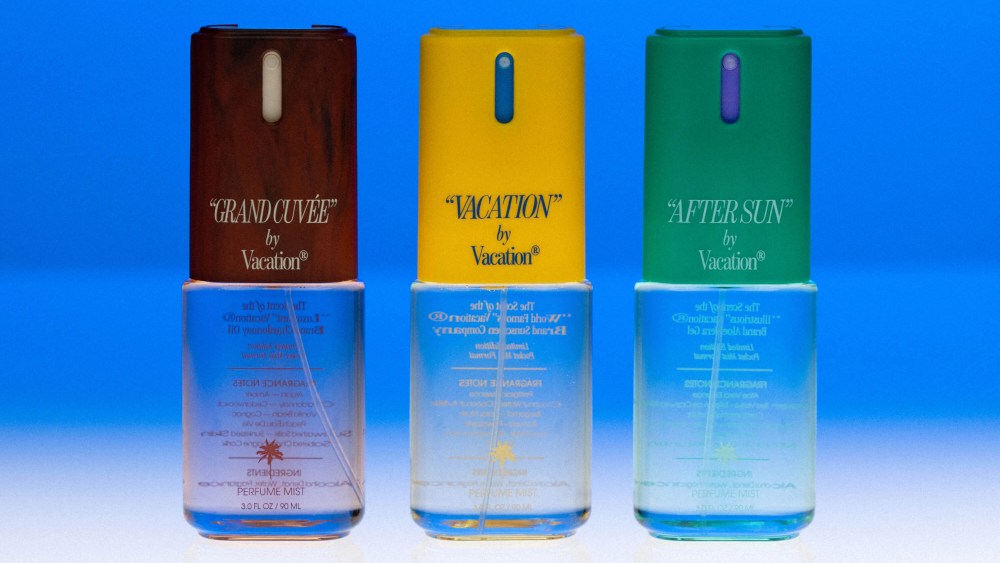Within the vast ocean of wellness trends, you may have encountered the aquatic gem known as sea moss. This marine marvel, although technically an algae, has also been touted as the latest and greatest superfood. In fact, according to some, this type of red seaweed is a treasure trove when it comes to health benefits. But is sea moss really as good for you as people say?
Fans of sea moss swear it can help with everything from immunity to glowing skin. It’s even rumored to help with heart and gut health. But is there any truth to these purported benefits? To get to the bottom of these claims, we turned to experts. Ahead, registered dietitians (myself included) weigh in on whether or not sea moss is actually good for you. Plus, learn more about (real) sea moss benefits, its potential side effects, and how to incorporate sea moss into your own wellness routine.
Experts Featured in This Article:
Jen Scheinman, MS, RDN, CDN, is a registered dietitian nutritionist and the creator of Next Jen Health.
Mascha Davis, MPH, RDN, is a registered dietitian and the author of “Eat Your Vitamins.”
Is Sea Moss Good For You?
Sea moss, also known as Irish moss or red seaweed, is a type of red algae that grows along the rocky parts of the Atlantic coastlines of Europe and North America. “While it’s gaining a lot of popularity in the wellness world now, it’s actually been consumed as part of traditional diets, especially in coastal regions like the Caribbean, Ireland, and parts of Asia,” says Jen Scheinman, MS, RDN, CDN.
Known for its high nutrient content, sea moss is a great source of iodine, potassium, calcium, and vitamins A, D, E, and K. It’s often used in food for its gelling properties, which means it often comes in gel form. Scheinman explains that “while there are not a lot of studies done with sea moss, it’s purported to have benefits ranging from thyroid health to gut health.”
“A four-tablespoon serving of Irish sea moss provides 10 percent of the daily value (DV) for iron, 7 percent of the DV for magnesium, and 4 percent of the DV for zinc, all for only 10 calories,” says Mascha Davis, MPH, RDN. Sea moss supplements are typically sold in gel, gummy, or tablet form.
Sea Moss Health Benefits
Here’s a list of what sea moss can do for your health, according to experts. As a note, make sure to consult with a doctor before starting any new medication or supplement, especially since supplements are not regulated by the Food and Drug Administration (FDA).
- Improved Thyroid Function: One remarkable benefit of sea moss is its high iodine content, which is crucial for proper thyroid function. This vital nutrient helps in the production of thyroid hormones, which are responsible for regulating metabolism, energy production, and cellular repair in the body. That said, “if you are considering using sea moss and you have a thyroid disorder, you’ll definitely want to connect with your healthcare practitioner, as too much iodine can have a negative impact on the thyroid,” Scheinman cautions.
- Stronger Immunity: Sea moss is known for its potential to support a healthy immune system. Packed with antioxidants and vitamins such as vitamin C, sea moss may play a role in bolstering the body’s defenses against common illnesses and infections.
- Healthier Skin: Sea moss is celebrated for its ability to improve skin health, thanks to its high sulfur content. Dubbed “nature’s collagen,” sulfur is often treated as a therapeutic agent in a variety of dermatologic disorders. It may enhance the elasticity and suppleness of the skin, promote faster healing of cuts and burns, and provide relief for conditions such as eczema and psoriasis.
- Better Gut Health: “Sea moss is a good source of fiber and prebiotics (nutrients that support your gut microbiome), so it may have a beneficial effect on gut health,” Scheinman says. Sea moss also supports digestive health thanks to its high mucilage content. This gel-like substance may help gut health by easing discomfort and aiding in the smooth transit of food through the digestive tract.
- Reduced Inflammation: The high antioxidant content of sea moss means that it could help lower inflammation and potentially lower your risk of chronic illness. This includes conditions like heart disease, some forms of cancer, and metabolic conditions like type 2 diabetes, Scheinman says.
Sea Moss Side Effects
While sea moss is often celebrated for its health benefits, it’s important to be aware of its potential side effects, too. Overconsumption can lead to an excess of iodine, which might disrupt thyroid function. Additionally, because sea moss acts as a blood thinner, those taking anticoagulant medications should exercise caution and speak with a doctor before using sea moss. On that note, it’s always advisable to consult with a healthcare provider before incorporating sea moss, or any new supplement, into your diet.
Also worth nothing: “Sea moss might pose a risk of elevated heavy-metal intake since seaweed has a tendency to absorb and accumulate heavy metals,” Davis tells PS. Plus, “eating too much sea moss can trigger an upset stomach, diarrhea, and/or constipation,” Scheinman says.
How to Add Sea Moss to Your Diet
Once you get the go ahead from your doctor, adding sea moss to your diet is simple (with a little know-how). Here are some ideas to get you started:
- Smoothies: Add sea moss gel to your favorite smoothie recipe for a nutrient boost.
- Teas and Beverages: Stir in a spoonful of sea moss gel into hot teas or homemade juices.
- Soups and Stews: Mix sea moss gel into broths or stews to thicken them and add minerals.
- Baked Goods: Use sea moss as a healthy additive in bread, cakes, or muffins.
- Sauces and Dressings: Blend sea moss into sauces, dressings, or dips for added texture and nutrients.
- Breakfast Bowls: Top off oatmeal or yogurt bowls with a spoonful of sea moss gel.
- Desserts: Incorporate sea moss gel into dessert recipes like puddings or vegan jellies for a healthful twist.
You can also take sea moss in capsule form and skip the recipes. But as with any supplement, it’s always best to check with your doctor before changing up your diet and wellness routine.
– Additional reporting by Chandler Plante
Chandler Plante is an assistant editor for PS Health and Fitness. She has over four years of professional journalism experience, previously working as an editorial assistant for People magazine and contributing to Ladygunn, Millie, and Bustle Digital Group. In her free time, she enjoys finding new ways to rock her 18(!) different eye patches, and making videos about chronic illness, beauty, and disability.
Lauren Manaker is an award-winning registered dietitian and freelance writer who is passionate about providing evidence-based nutrition information in a fun and interesting way




